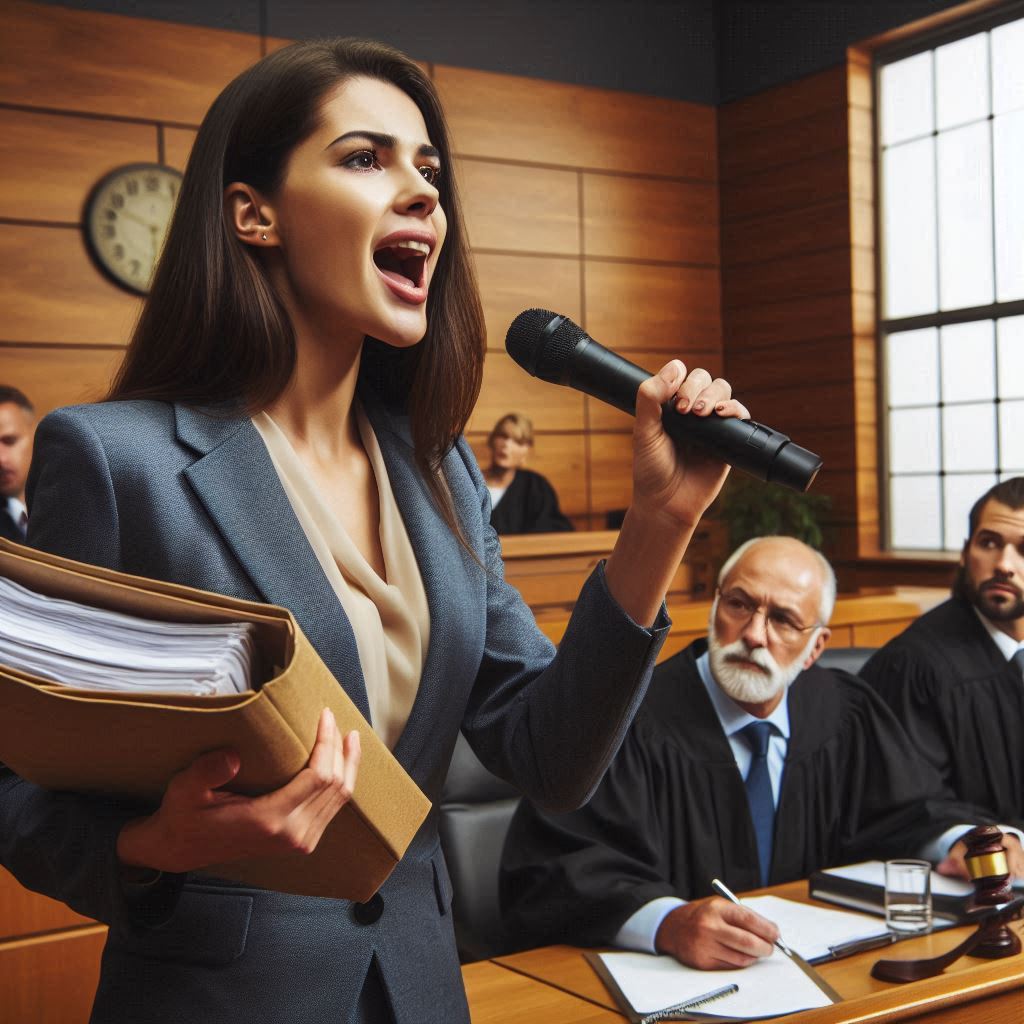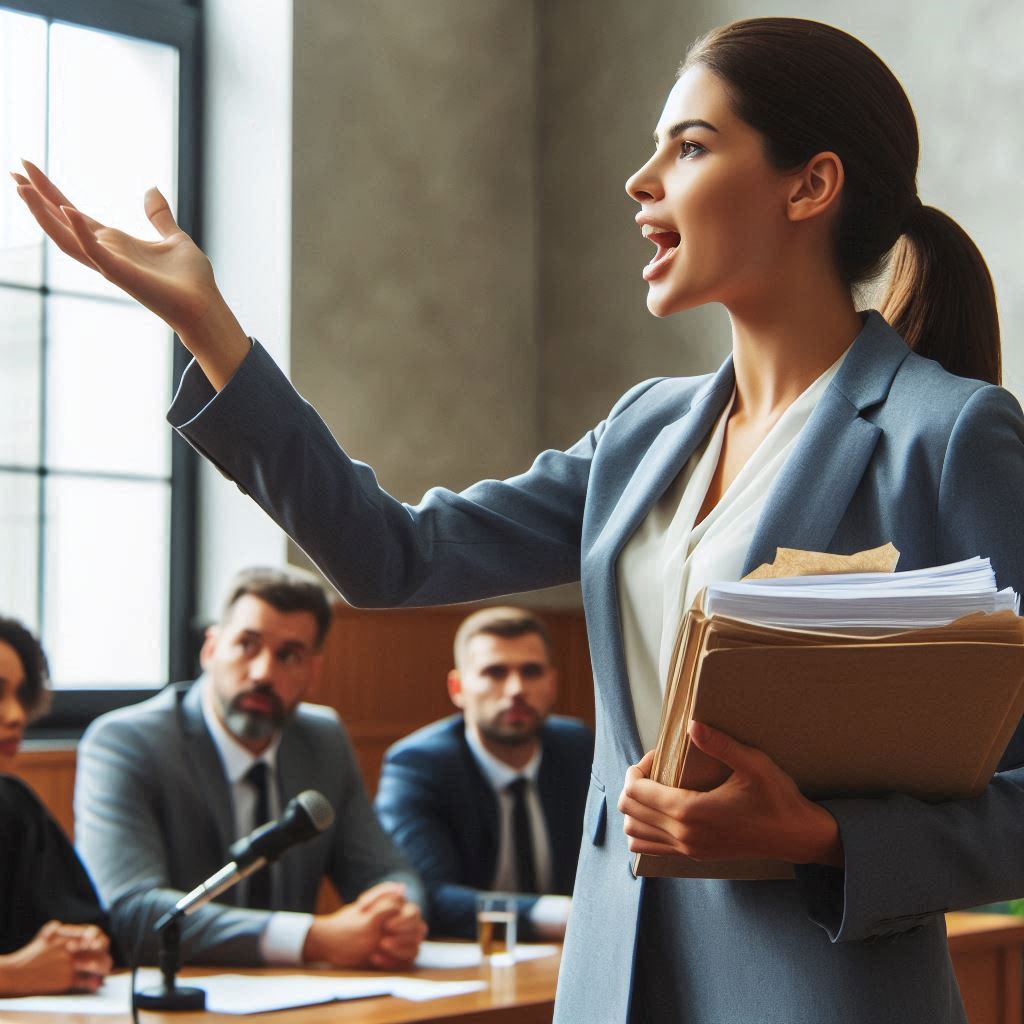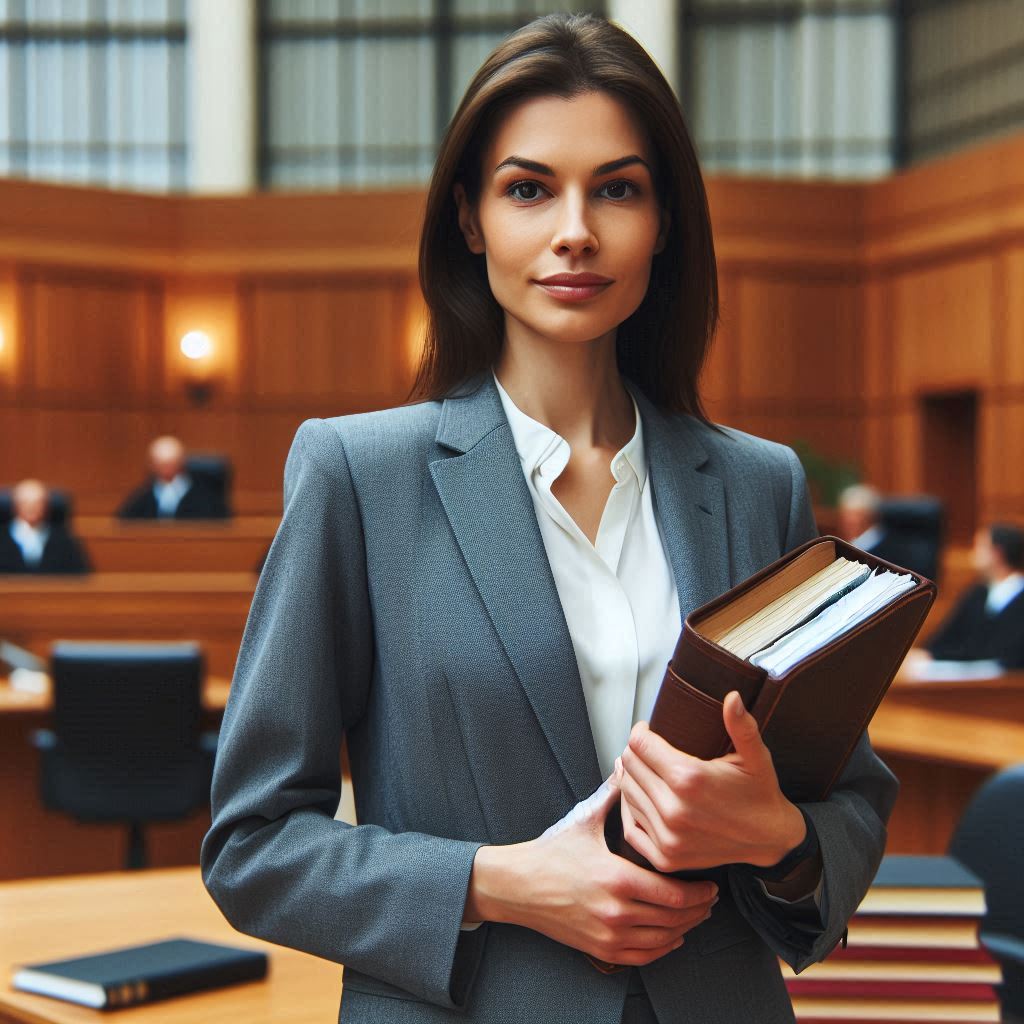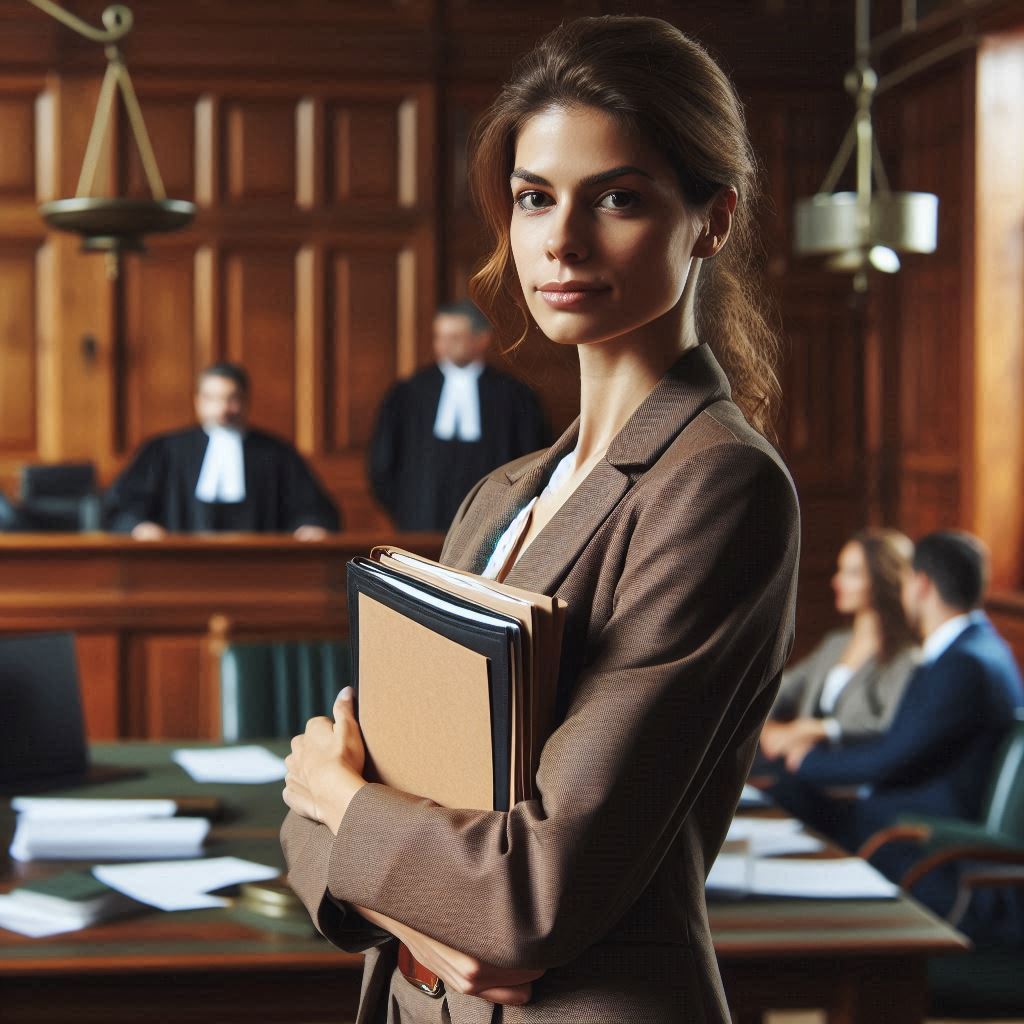Introduction
In the intricate realm of the criminal justice system, prosecutors play a pivotal role.
Their responsibilities are crucial to ensuring justice is served and maintaining societal order.
Let’s delve into what exactly a prosecutor does on a daily basis and why their role is indispensable.
Prosecutors are legal professionals tasked with representing the state or federal government in criminal cases.
They initiate and conduct legal proceedings against individuals accused of committing crimes.
Their primary objective is to uphold the law, seek justice for victims, and ensure that those who violate the law are held accountable.
Importance of Prosecutors in the Criminal Justice System
Prosecutors are integral to the functioning of the criminal justice system for several compelling reasons.
Firstly, they act as advocates for victims of crime, ensuring their voices are heard and their rights protected throughout legal proceedings.
Secondly, prosecutors work diligently to uphold public safety by prosecuting offenders and deterring future criminal behavior.
Their decisions impact community safety and contribute to maintaining law and order.
In addition to these critical roles, prosecutors perform a myriad of daily tasks that contribute to the efficient operation of the legal system.
They meticulously review case files, analyze evidence, and collaborate with law enforcement agencies to build strong cases against defendants.
Courtroom appearances are frequent, where they present arguments, examine witnesses, and negotiate plea bargains when appropriate.
Moreover, prosecutors engage in legal research to stay abreast of evolving laws and precedents, ensuring their strategies align with current legal standards.
They also advise law enforcement on investigative strategies and provide legal guidance throughout criminal investigations.
Beyond their courtroom duties, prosecutors participate in community outreach programs to educate the public on legal rights and responsibilities.
In essence, prosecutors embody the principles of justice and fairness in their daily work.
They navigate complex legal landscapes with integrity, seeking equitable outcomes that uphold the rule of law.
Their dedication to seeking truth and pursuing justice underscores their pivotal role in safeguarding society from criminal threats.
This overview highlights the multifaceted nature of a prosecutor’s daily responsibilities and underscores their fundamental importance in the pursuit of justice.
As we continue to explore the dynamics of legal advocacy, it becomes evident that prosecutors stand as pillars of integrity and guardians of the rule of law in our society.
Investigating Cases
Gathering Evidence And Interviewing Witnesses
Prosecutors play a pivotal role in the criminal justice system, tasked with ensuring justice is served and the law upheld.
A typical day involves various responsibilities, primarily centered around investigating cases to build strong legal arguments.
Prosecutors begin by gathering evidence meticulously.
This involves reviewing police reports, forensic findings, and witness statements to establish a comprehensive understanding of the case.
Interviewing witnesses is crucial.
They seek testimony that supports the prosecution’s narrative, ensuring witnesses are credible and their accounts align with the evidence.
Collaboration with law enforcement agencies is integral.
Prosecutors work closely with police investigators to obtain additional evidence and insights crucial for advancing the case.
Working with Law Enforcement Agencies
Prosecutors maintain regular communication with law enforcement.
This ensures a smooth exchange of information, vital for building a robust case and addressing any legal nuances that may arise.
Basically, the daily responsibilities of a prosecutor are multifaceted and demanding, requiring a meticulous approach to investigating cases and evaluating their legal merit.
By gathering evidence, interviewing witnesses, and collaborating with law enforcement agencies, prosecutors ensure they are well-prepared to uphold justice and advocate for victims.
This active involvement in the investigative process underscores the crucial role prosecutors play in the criminal justice system.
Evaluating the Strength of the Case
Assessing the viability of the case is a critical step.
Prosecutors meticulously review all gathered evidence and witness testimonies to determine if the case has sufficient merit for prosecution.
They analyze legal precedents and relevant statutes to strengthen their argument.
This involves identifying key legal principles that support their position and anticipating potential defenses from the opposition.
Read: Prosecutors‘ Role in Sentencing and Appeals
Charging decisions
Prosecutors play a critical role in the criminal justice system, with one of their primary responsibilities being making charging decisions.
This involves carefully evaluating the evidence presented and determining whether there is enough to pursue criminal charges against an individual.
Deciding whether to proceed with a case
Prosecutors must weigh various factors when deciding whether to move forward with a case.
They consider the strength of the evidence, the credibility of witnesses, and the likelihood of securing a conviction at trial.
Additionally, they assess the impact prosecuting the case may have on the victims and community.
When determining whether to proceed with a case, prosecutors must also consider the resources required to take the case to trial.
They assess whether it is in the best interest of justice to allocate resources to this particular case or if those resources would be better spent elsewhere.
Determining the appropriate charges to file
Once prosecutors decide to move forward with a case, they must determine the appropriate charges to file against the defendant.
This involves carefully reviewing the evidence presented during the investigation and applying the relevant legal standards.
Prosecutors take into account the severity of the offense, the defendant’s criminal history, and any mitigating or aggravating factors that may impact the charges filed.
They must ensure that the charges accurately reflect the alleged criminal conduct and that they are in line with the law.
Considering the evidence and legal standards
Prosecutors are responsible for upholding the law and ensuring that justice is served.
This involves carefully considering the evidence gathered during the investigation and applying the appropriate legal standards to determine the strength of the case.
Prosecutors must adhere to the principles of due process and fairness while evaluating the evidence.
They must consider any potential defenses raised by the defendant and address them accordingly to ensure a fair and just outcome in the case.
In general, the charging decisions made by prosecutors have a significant impact on the outcome of a criminal case.
By carefully evaluating the evidence, determining the appropriate charges, and applying legal standards, prosecutors play a crucial role in upholding the law and seeking justice for victims of crime.
Read: Mentorship Programs for Aspiring Prosecutors
Court Appearances
Prosecutors have a crucial role in representing the state during court appearances.
Their responsibilities include presenting evidence and arguments to support the state’s case.
During court appearances, prosecutors examine witnesses to gather information that supports the state’s case.
They also cross-examine witnesses presented by the defense to challenge their testimonies and credibility.
Representing the State in Court
- Prosecutors stand as the legal representatives of the state in criminal cases.
- They present the case on behalf of the state against the accused individual.
- Prosecutors ensure that the state’s interests and the pursuit of justice are served during court proceedings.
Presenting Evidence and Arguments
- Prosecutors introduce relevant evidence to support the charges brought against the defendant.
- They also present legal arguments based on the facts of the case and applicable laws.
- Prosecutors aim to convince the judge or jury of the defendant’s guilt beyond a reasonable doubt.
Examining Witnesses and Cross-Examining the Defense
- Prosecutors question witnesses to elicit testimonies that strengthen the case against the defendant.
- They use effective questioning techniques to establish the facts and sequence of events.
- Prosecutors also cross-examine witnesses presented by the defense to challenge their credibility and highlight inconsistencies.
In a nutshell, court appearances form a crucial part of a prosecutor’s daily responsibilities.
By effectively representing the state, presenting evidence, and examining witnesses, prosecutors contribute to the pursuit of justice in criminal cases.
Read: Public Perception and Trust in Prosecutors

Plea negotiations
Prosecutors play a crucial role in the criminal justice system, and one of their key responsibilities is plea negotiations.
This involves engaging in discussions with defense attorneys to reach agreements that can lead to resolving criminal cases without going to trial.
Negotiating plea deals with defense attorneys
Prosecutors work closely with defense attorneys to negotiate plea deals.
This process involves assessing the strength of the evidence, understanding the charges, and considering the potential outcomes of a trial.
By engaging in these negotiations, prosecutors aim to secure guilty pleas from defendants in exchange for reduced charges or sentences.
Transform Your Career Today
Unlock a personalized career strategy that drives real results. Get tailored advice and a roadmap designed just for you.
Start NowEvaluating the benefits and risks of plea bargains
Before agreeing to a plea deal, prosecutors carefully evaluate the benefits and risks involved.
They consider factors such as the seriousness of the crime, the defendant’s criminal history, and the impact on victims and the community.
Prosecutors weigh these considerations to determine whether a plea bargain is in the best interest of justice.
Considering the interests of victims and the community
Prosecutors also take into account the interests of victims and the community when negotiating plea deals.
They seek to ensure that the outcome of the case reflects the harm caused by the crime and promotes public safety.
By considering these interests, prosecutors strive to achieve a balance between the needs of the victims, the community, and the defendants.
Read: Impact of High-Profile Cases on Prosecutors‘ Careers
Preparing for Trial
Prosecutors play a pivotal role in the criminal justice system, ensuring that justice is served through meticulous preparation and execution.
One of their crucial tasks involves preparing for trial, which encompasses several essential responsibilities.
Preparing for trial is a meticulous process that demands thoroughness and attention to detail.
Prosecutors start by reviewing evidence and witness statements.
This step is critical as it forms the foundation of their case, ensuring they have a comprehensive understanding of the facts and testimonies that will be presented in court.
Once the evidence is reviewed, prosecutors move on to developing a trial strategy.
This involves determining how best to present their case to the judge and jury, emphasizing key points that support their arguments.
A well-thought-out strategy enhances the prosecution’s effectiveness in persuading the court of the defendant’s guilt.
Anticipation is another crucial aspect of trial preparation.
Prosecutors must anticipate defense arguments that may be presented during the trial.
This involves analyzing the case from the perspective of the defense, identifying potential weaknesses in their own arguments, and preparing responses that effectively counter those arguments.
Reviewing Evidence and Witness Statements
Reviewing evidence involves examining all materials collected during the investigation.
This includes physical evidence, such as documents, forensic reports, and other tangible items relevant to the case.
Witness statements are also carefully scrutinized to ensure consistency and reliability, preparing prosecutors to effectively present them during the trial.
Developing Trial Strategy
Developing a trial strategy requires prosecutors to leverage their understanding of the evidence and witness statements.
They must craft a narrative that aligns with the facts of the case, presenting a compelling argument that resonates with the judge and jury.
This strategic approach enhances the prosecution’s ability to navigate the complexities of the trial process.
Anticipating Defense Arguments and Preparing Responses
Anticipating defense arguments is a proactive measure that allows prosecutors to preemptively address potential challenges to their case.
By identifying possible defense strategies, prosecutors can formulate responses that dismantle opposing arguments and reinforce the prosecution’s narrative.
This preparation ensures readiness to counter any deviations from the prosecution’s intended course.
In review, the daily responsibilities of a prosecutor during trial preparation are multifaceted and demanding.
From meticulously reviewing evidence and witness statements to strategically developing their case and anticipating defense strategies, prosecutors uphold the integrity of the legal process.
Their proactive approach ensures thoroughness and preparedness in presenting compelling arguments that seek justice for victims and uphold the rule of law.
This section provides a detailed insight into the essential tasks that prosecutors undertake daily as they navigate the complexities of preparing for trial.
Trial proceedings
As a prosecutor, trial proceedings are one of the most crucial aspects of the job.
This is where the prosecutor has the opportunity to present the case against the defendant in a court of law.
Let’s take a detailed look at the responsibilities of a prosecutor during trial proceedings:
Delivering Opening Statements
One of the first responsibilities of a prosecutor during trial proceedings is delivering the opening statement.
This is the prosecutor’s chance to lay out the case against the defendant, outlining what the prosecution intends to prove throughout the trial.
The opening statement is a critical opportunity for the prosecutor to set the tone for the case and establish credibility with the judge and jury.
Another essential responsibility of a prosecutor during trial proceedings is presenting evidence and calling witnesses.
The prosecutor must introduce physical evidence, such as documents, photographs, or other objects, to support the case against the defendant.
Additionally, the prosecutor may call witnesses to testify in court to provide firsthand accounts or expert opinions related to the case.
It is vital for the prosecutor to ensure that all evidence and witnesses are relevant and admissible in court.
Responding to Objections and Challenges from the Defense
During trial proceedings, the defense may raise objections or challenges to the prosecutor’s evidence or witness testimony.
It is the prosecutor’s responsibility to respond to these objections effectively and convincingly.
The prosecutor must be prepared to provide legal arguments and citations to support the admissibility of evidence or the credibility of witnesses.
Additionally, the prosecutor must be quick on their feet and able to think critically to address any unexpected challenges from the defense.
In fact, trial proceedings are a critical part of a prosecutor’s daily responsibilities.
The prosecutor delivers opening and closing statements and presents evidence.
They call witnesses and respond to defense objections.
The prosecutor plays a key role in ensuring justice is served in court.
Sentencing recommendations
Making Recommendations To The Court On Sentencing
When it comes to sentencing recommendations, prosecutors play a crucial role in the criminal justice system.
They are responsible for evaluating the facts of a case, the defendant’s criminal history, and the severity of the crime to determine the appropriate punishment to recommend to the court.
Prosecutors carefully review all the evidence presented during the trial to understand the nature of the crime and its impact on the victims.
They also take into account the defendant’s criminal history, including any past convictions or patterns of behavior that may indicate a likelihood of reoffending.
Based on this thorough evaluation, prosecutors make sentencing recommendations to the court.
These recommendations are aimed at ensuring that justice is served and that the punishment fits the crime.
Prosecutors advocate for sentences that reflect the severity of the offense and the harm caused to the victims.
Prosecutors may consider a range of sentencing options, including probation, fines, community service, or incarceration.
They weigh the factors involved in each case and make informed decisions on what they believe to be the most appropriate form of punishment.
Advocating for the appropriate punishment
Advocating for the appropriate punishment is a key responsibility of prosecutors.
They must balance the need for rehabilitation and deterrence with the seriousness of the offense committed.
Prosecutors aim to seek justice for the victims and the community while also considering the best interests of the defendant.
In some cases, prosecutors may seek leniency for first-time offenders or individuals who show genuine remorse for their actions.
They may recommend alternative sentencing options that focus on rehabilitation rather than punishment, especially for non-violent offenses or cases where the defendant is a low-level participant in the crime.
Ultimately, sentencing recommendations made by prosecutors are based on a thorough analysis of the case, the defendant’s background, and the principles of justice.
Prosecutors strive to ensure that the punishment imposed by the court is fair, proportionate, and serves the interests of both the victims and society as a whole.
See Related Content: Certifications for E-Discovery Specialists
Continuing education and training
Staying Current On Changes In Laws And Legal Procedures
As a prosecutor, one of the key responsibilities is to always stay updated on the changes happening in laws and legal procedures.
It is essential to be aware of any new regulations or amendments that may impact the cases being handled.
This involves constantly reading legal publications, attending training sessions, and keeping abreast of any legislative changes that come into effect.
Attending conferences and seminars plays a crucial role in enhancing a prosecutor’s knowledge and understanding of various legal matters.
These events provide an opportunity to interact with other legal professionals, exchange ideas, and gain insights into different aspects of the law.
By actively participating in such gatherings, prosecutors can broaden their perspective and stay informed about the latest trends in the legal field.
Improving skills in trial advocacy and legal research
Another important aspect of continuing education for prosecutors is improving skills in trial advocacy and legal research.
A prosecutor’s ability to present a case effectively in court and conduct thorough legal research is vital for achieving successful outcomes.
By honing their trial advocacy skills, prosecutors can become more persuasive presenters and better advocates for the interests of justice.
Additionally, developing expertise in legal research ensures that prosecutors can gather relevant information, analyze complex legal issues, and make well-informed decisions.
In closing, continuing education and training are indispensable components of a prosecutor’s daily responsibilities.
Prosecutors can enhance their effectiveness by staying current on laws, attending conferences, and improving trial advocacy skills.
They serve justice better by enhancing legal research skills and upholding the rule of law.
Conclusion
The role of a prosecutor is pivotal in our justice system.
They diligently pursue justice through active prosecution of criminal cases, ensuring that the guilty are held accountable.
Their daily responsibilities encompass various tasks, from case preparation to courtroom litigation.
A prosecutor’s day begins with case review and preparation.
They analyze evidence, interview witnesses, and collaborate with law enforcement to build strong cases.
In court, prosecutors present arguments, examine witnesses, and ensure that justice is served.
Prosecutors play a crucial role in upholding justice and ensuring public safety.
By prosecuting criminals, they deter crime and protect communities.
Their work impacts the lives of victims, witnesses, and the accused, aiming for fair outcomes that reflect the law.
In summary, prosecutors navigate complex legal landscapes daily, driven by a commitment to justice and public service.
Their efforts contribute to a safer society, where the rule of law prevails, and individuals are held accountable for their actions.




